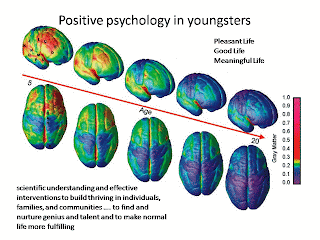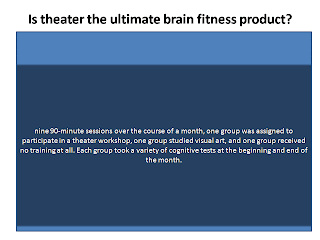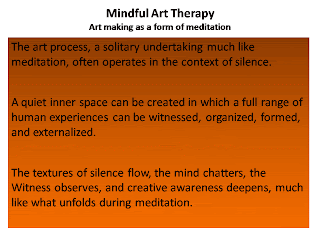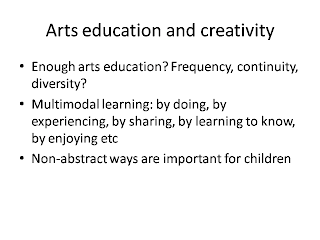The Seoul Agenda: Goals for the Development of Arts Education is a major outcome of UNESCO’s Second World Conference on Arts Education held in Seoul, the Republic of Korea, on 25 – 28 May 2010.
The Seoul Agenda calls upon UNESCO Member States, civil society, professional organizations and communities to recognize its governing goals, to employ the proposed strategies, and to implement the action items in a concerted effort to realize the full potential of high quality arts education to positively renew educational systems, to achieve crucial social and cultural objectives, and ultimately to benefit children, youth and life-long learners of all ages.
Against the backdrop of the Seoul Agenda, I will be running a series of interviews and other features on guerilla arts educators. Folk who fall outside of the net of government, corporate or NGO stakeholders. Fellow artists who concern themselves with children and arts-education. But first, what is the Seoul Agenda?
The Second World Conference on Arts Education
Seoul Agenda:
Goals for the Development of Arts Education
The Seoul Agenda: Goals for the Development of Arts Education is a major outcome
of UNESCO’s Second World Conference on Arts Education held in Seoul, the
Republic of Korea, on 25 – 28 May 2010. Convened at the initiative of UNESCO, in
close partnership with the Ministry of Culture, Sports and Tourism of the Government
of the Republic of Korea, the Conference gathered more than 650 officials and
experts in arts education from 95 countries. The programme included a Ministerial
round table, keynote speeches, panel discussions, parallel workshops, regional
group discussions, an encounter with NGOs and foundations, and a special session
on Arts Education and the Rapprochement of Cultures.
Work on the Seoul Agenda began a year prior to the Conference during a meeting in
July 2009 of the International Advisory Committee (IAC) at UNESCO Headquarters,
and culminated in a presentation of the document to the participants during the
closing session of the Conference. In preparation for the Conference, the IAC
continued to refine the goals via e-mail exchanges in the months following the
meeting in 2009.
An amended version, which took into account comments and proposals received
from members of the IAC was prepared during a meeting immediately preceding the
Conference. This version of the Seoul Agenda was circulated to experts during the
Conference. Presentations and debates were monitored throughout the Conference
by the General Rapporteur and revisions were made to the document to reflect
priorities and insights offered by the Conference participants. Revisions of an
editorial nature were subsequently completed by the General Rapporteur to reflect
responses received from participants after presentation of the Seoul Agenda at the
close of the Conference.
Preamble
The Seoul Agenda: Goals for the Development of Arts Education reflects
the conviction of the IAC members and the experts participating in the
Conference that arts education has an important role to play in the
constructive transformation of educational systems that are struggling to
meet the needs of learners in a rapidly changing world characterized by
remarkable advances in technology on the one hand and intractable
social and cultural injustices on the other. Issues that concerned the IAC
included but were not limited to peace, cultural diversity and intercultural
understanding as well as the need for a creative and adaptive workforce
in the context of post industrial economies. Equally, participants agreed
that arts education can make a direct contribution to resolving the social
and cultural challenges facing the world today. Of crucial importance to
the success of arts education in meeting these challenges is the need to
achieve high standards in the conception and delivery of programmes.
The Seoul Agenda takes these three issues as its organizing principles.
As a product of UNESCO’s Second World Conference on Arts Education,
the Seoul Agenda is intended to build on the UNESCO Road Map for
Arts Education that was a major outcome of the First World Conference
held in Lisbon, Portugal, in 2006. The Road Map offered an important
theoretical and practical framework that provided guidance for advancing
the qualitative development and growth of arts education. A central goal
of the Seoul Conference was to reassess and encourage further
implementation of the Road Map. The Seoul Agenda will serve as a
concrete plan of action that integrates the substance of the Road Map
within a structure of three broad goals, each accompanied by a number
of practical strategies and specific action items.
The Seoul Agenda calls upon UNESCO Member States, civil society,
professional organizations and communities to recognize its governing
goals, to employ the proposed strategies, and to implement the action
items in a concerted effort to realize the full potential of high quality arts
education to positively renew educational systems, to achieve crucial
social and cultural objectives, and ultimately to benefit children, youth
and life-long learners of all ages.
GOAL 1: Ensure that arts education is accessible as a
fundamental and sustainable component of a high quality
renewal of education
Strategies:
1.a Affirm arts education as the foundation for balanced
creative, cognitive, emotional, aesthetic and social
development of children, youth and life-long learners
Action Items
1.a (i) Enact policies and deploy resources to ensure
sustainable access to:
- comprehensive studies in all arts fields for
students at all levels of schooling as part of a
broad and holistic education,
- out of school experiences in all arts fields for a
diversity of learners in communities,
- interdisciplinary arts experiences including digital
and other emerging art forms both in school and
out of school;
1.a (ii) Enhance synergy between the different aspects
of development (creative, cognitive, emotional,
aesthetic and social);
1.a (iii) Establish high quality evaluation systems in
order to ensure the well-rounded development of
learners in arts education.
1.b Foster the constructive transformation of educational
systems and structures through arts education
Action Items
1.b (i) Apply arts as an educational model introducing
artistic and cultural dimensions in other academic
disciplines;
1.b (ii) Foster a creative culture among teachers and
school administrators through arts education;
1.b (iii) Apply arts education to introduce innovative
pedagogies and creative approaches to curricula that
will engage a diversity of learners.
1.c Establish systems of lifelong and intergenerational
learning in, about and through arts education
Action Items
1.c (i) Ensure learners from all social backgrounds have
lifelong access to arts education in a wide range of
community and institutional settings;
1.c (ii) Ensure opportunities for arts education
experiences among different age groups;
1.c (iii) Facilitate intergenerational learning in order to
safeguard knowledge of traditional arts and foster
intergenerational understanding.
1.d Build capacities for arts education leadership, advocacy
and policy development
Action Items
1.d (i) Build practitioners’ and researchers’ capacities
for arts education policy reform including participation
of marginalized populations and under-privileged groups
in arts education policy-planning processes;
1.d (ii) Enhance communications and advocacy by
reinforcing relations with the information media,
establishing an appropriate language for
communication, and utilizing information technology
and virtual networking systems to link existing national
and regional initiatives;
1.d (iii) Communicate the individual and social impact of
arts education to raise the public awareness of the
values of arts education and to encourage support for
arts education in the public and private sectors.
GOAL 2: Assure that arts education activities and
programmes are of a high quality in conception and delivery
Strategies:
2.a Develop agreed high standards for arts education that
are responsive to local needs, infrastructure and cultural
contexts
Action Items
2.a (i) Establish high standards for the delivery of arts
education programmes in school and the community;
2.a (ii) Institute formally recognized qualifications
for teachers and community facilitators of arts education;
2.a (iii) Provide necessary and appropriate facilities and
resources for arts education.
2.b Ensure that sustainable training in arts education is
available to educators, artists and communities
Action Items
2.b (i) Offer necessary skills and knowledge for
teachers (general and arts) and artists working in
education through sustainable professional learning
mechanisms;
2.b (ii) Integrate artistic principles and practices within
pre-service teacher education and the professional
development of practising teachers;
2.b (iii) Ensure the implementation of arts education
training through the development of quality monitoring
procedures such as supervision and mentoring.
2.c Stimulate exchange between research and practice in
arts education
Action Items
2.c (i) Support arts education theory and research
globally and link theory, research and practice;
2.c (ii) Encourage cooperation in developing arts
education research and distribute research as well as
exemplary arts education practices through international
structures such as clearing houses and observatories;
2.c (iii) Consolidate high quality evidence of the impact
of arts education and assure its equitable distribution.
2.d Facilitate collaboration between educators and artists in
schools and in out-of-school programmes
Action Items
2.d (i) Encourage schools to initiate partnerships
between artists and teachers in delivering curricula;
2.d (ii) Encourage community organizations to cooperate
with teachers in providing arts education programmes in
a variety of different learning environments;
2.d (iii) Elaborate cultural projects within various
learning environments actively involving parents, family
members and community members.
2.e Initiate arts education partnerships among stakeholders
and sectors
Action Items
2.e (i) Build partnerships within and beyond governments
to strengthen the role of arts education in society,
especially across educational, cultural, social, health,
industrial and communication sectors;
2.e (ii) Coordinate the efforts of governments, civil
society organizations, higher education institutions and
professional associations to strengthen arts education
principles, policies and practices;
2.e (iii) Engage private sector entities including
foundations and philanthropic agencies as partners in
the development of arts education programmes.
GOAL 3: Apply arts education principles and practices to
contribute to resolving the social and cultural challenges
facing today’s world
Strategies:
3.a Apply arts education to enhance the creative and
innovative capacity of society
Action Items
3.a (i) Apply arts education throughout schools and
communities to foster the creative and innovative
capacity of individuals and to cultivate a new generation
of creative citizens;
3.a (ii) Apply arts education to promote creative and
innovative practices in favor of the holistic social,
cultural and economic development of societies;
3.a (iii) Employ emerging innovations in communication
technology as a source of critical and creative thinking.
3.b Recognize and develop the social and cultural well-being
dimensions of arts education
Action Items
3.b (i) Encourage recognition of the social and cultural
well-being dimensions of arts education including:
- the value of a full range of traditional and
contemporary arts experiences,
- the therapeutic and health dimensions of arts
education,
- the potential of arts education to develop and
conserve identity and heritage as well as to
promote diversity and dialogue among cultures,
- the restorative dimensions of arts education in
post-conflict and post-disaster situations;
3.b (ii) Introduce knowledge about social and cultural
well-being in training programmes for arts education
professionals;
3.b (iii) Apply arts education as a motivating process to
enhance learner engagement and reduce education
dropout levels.
3.c Support and enhance the role of arts education in the
promotion of social responsibility, social cohesion,
cultural diversity and intercultural dialogue
Action Items
3.c (i) Give priority to recognition of the learner-specific
context and encourage educational practices adapted
to the local relevancy of the learners including
minorities and migrants;
3.c (ii) Foster and enhance knowledge and understanding
of diverse cultural and artistic expressions;
3.c (iii) Introduce intercultural dialogue skills, pedagogy,
equipment and teaching materials in support of training
programmes in arts education.
3.d Foster the capacity to respond to major global
challenges, from peace to sustainability through arts
education
Action Items
3.d (i) Focus arts education activities on a wide range
of contemporary society and culture issues such as the
environment, global migration, sustainable
development;
3.d (ii) Expand multi-cultural dimensions in the practice
of arts education and increase intercultural mobility of
students and teachers to foster global citizenship;
3.d (iii) Apply arts education to foster democracy and
peace in communities and to support reconstruction in
post-conflict societies.






































